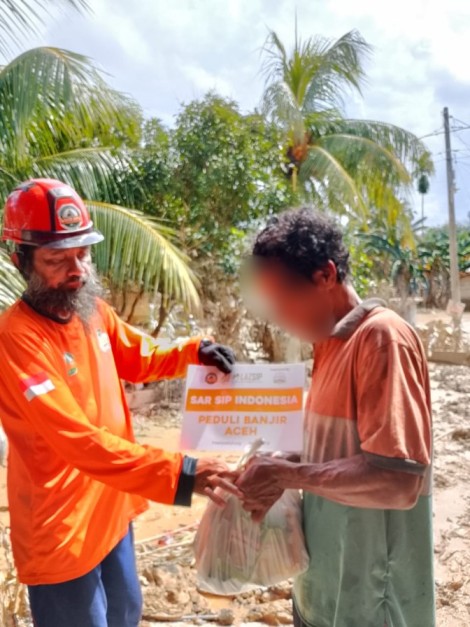News Focus – Extreme climate threatens Earth, humans

Indonesia’s potential economic losses of 544 trillion rupiahs include four sectors, namely coastal and marine 408 trillion rupiahs (about 27.7 billion dollars), water 26 trillion rupiahs (about 1.7 billion dollars), agriculture 78 trillion rupiahs (about 5.3 billion dollars) and health 31 trillion rupiahs (about 2.1 billion dollars).
Jakarta (Indonesia Window) – Today the world, including Indonesia, is facing the challenge of extreme climate change that has been affecting the economic sector as well as biodiversity, and threatening the future of the earth and human beings.
Director of the Environment at the Indonesian Ministry of National Development Planning Medrilzam said that if there is no policy intervention, Indonesia’s potential economic losses due to the climate change would reach 544 trillion rupiahs (some 37.03 billion U.S. dollars) during 2020 to 2024.
“We see the potential hazard that exists and after being calculated and evaluated, the potential economic losses reach 544 trillion rupiahs,” Medrilzam said in a media briefing, ‘Measuring The Progress of Low Carbon and Green Economy’, as quoted by Antara news agency here on Tuesday (Aug. 9).
Medrilzam said that Indonesia’s potential economic losses of 544 trillion rupiahs include four sectors, namely coastal and marine 408 trillion rupiahs (about 27.7 billion dollars), water 26 trillion rupiahs (about 1.7 billion dollars), agriculture 78 trillion rupiahs (about 5.3 billion dollars) and health 31 trillion rupiahs (about 2.1 billion dollars).
In Indonesia alone, there has been an increase in the intensity of hydrometeorological disasters, reaching 5,402 events only throughout 2021, consisting of 98 percent to 99 percent of them being hydrometeorological disasters.
According to him, this climate change must be addressed immediately through various climate resilience policies, as both Indonesia and the world currently have a triple planetary crisis, namely climate change, pollution and the loss of biodiversity that would threaten the future of the earth and humans.
Meanwhile, Director of the Department of Economic and Monetary Policy at Bank Indonesia (BI) Wahyu Agung Nugroho said that the climate change is included in Indonesia’s very important agenda which has a significant role in maintaining inflation.
“From the inflation rate in the last few months, one of the causes is bad weather in certain production centers of food commodities, including chili and shallots, in several parts of Indonesia,” Wahyu said at the CGS-CIMB 14th Annual Indonesia Conference 2022 as quoted by REPUBLIKA.CO.ID here Tuesday (Aug. 9).
Therefore, this condition becomes the reason why the monetary authorities are very concerned about the climate change.
According to Wahyu, the climate change would get worse if all countries, including Indonesia, do not immediately take decisive and consistent actions to reduce the unfavorable global weather.
Recently, global temperatures have been reported to be increasing and causing more frequent and worse material disasters, including those in Indonesia, and causing production problems, especially in agriculture.
Facing these challenges, central banks around the world, including Bank Indonesia, continue to work hard on a joint climate change agenda.
Wahyu realized that if the climate change continues, Indonesia would become one of the countries that suffer the most from the global climate change
For this situation, Indonesia has participated in global efforts to reduce carbon emissions by ratifying the Paris agreement to reduce carbon emissions by up to 41 percent by 2030.
“BI supports this effort and we emphasize that the transition process to the local economy must be carried out smoothly because this transition process would be long, and would not be easy. One of them is about how we finance this transition process to a low carbon economy period or in terms of transition must be fair and affordable,” Wahyu said.
At the national coordination meeting of the Meteorology, Climatology and Geophysics Agency (BMKG) on Monday (Aug. 8), Indonesia’s President Joko Widodo (Jokowi) ordered the BMKG to identify climate risks and their impacts comprehensively.
According to Jokowi, the adaptation that must be done is to increase the capacity of human resources, and equipment for weather and climate modeling that combines information from satellite technology.
The president also asked the BMKG to strengthen information and literacy services, especially in the areas of agriculture and fisheries, so that farmers and fishermen can anticipate extreme weather.
In addition, the BMKG was also asked to expand the scope of the climate field school and fisherman’s weather field school forum.
“This condition is a real challenge for us. Combating climate change has become a priority issue and global challenge after the Covid-19 subsides,” Jokowi said.
On the same occasion, Head of the BMKG Dwikorita Karnawati said climate change could threaten food security in Indonesia.
Dwikorita said that extreme weather and hydrometeorological disasters made agricultural and fishery activities more vulnerable to disruption, failure, and even threatened the productivity of crops and fishing, and the safety of farmers and fishermen.
Therefore, farmers and fishermen as the last link in the chain of receiving weather and climate information, as well as spearheading food security, need to be supported by the BMKG in anticipating weather and climate.
“The field school mechanism organized by the BMKG with related partners is a platform designed and implemented to facilitate the literacy of farmers and fishermen,” Dwikorita explained.
Through field schools, the use of the BMKG information is strengthened and disseminated so that it can be utilized more by farmers and fishermen, as well as various related parties in supporting agricultural and fishery activities in a more adaptive, productive and resilient manner.
Reporting by Indonesia Window

.jpg)








